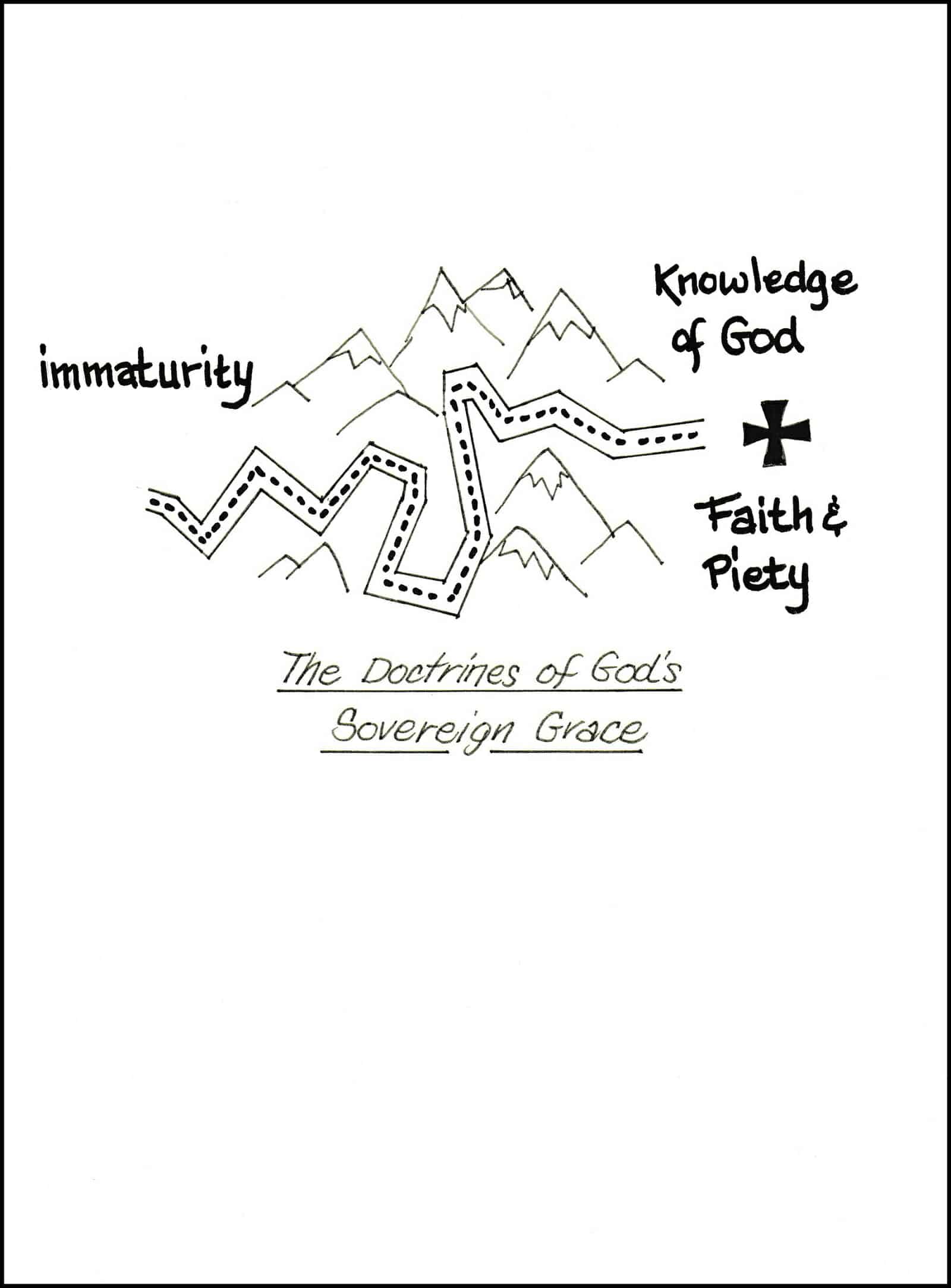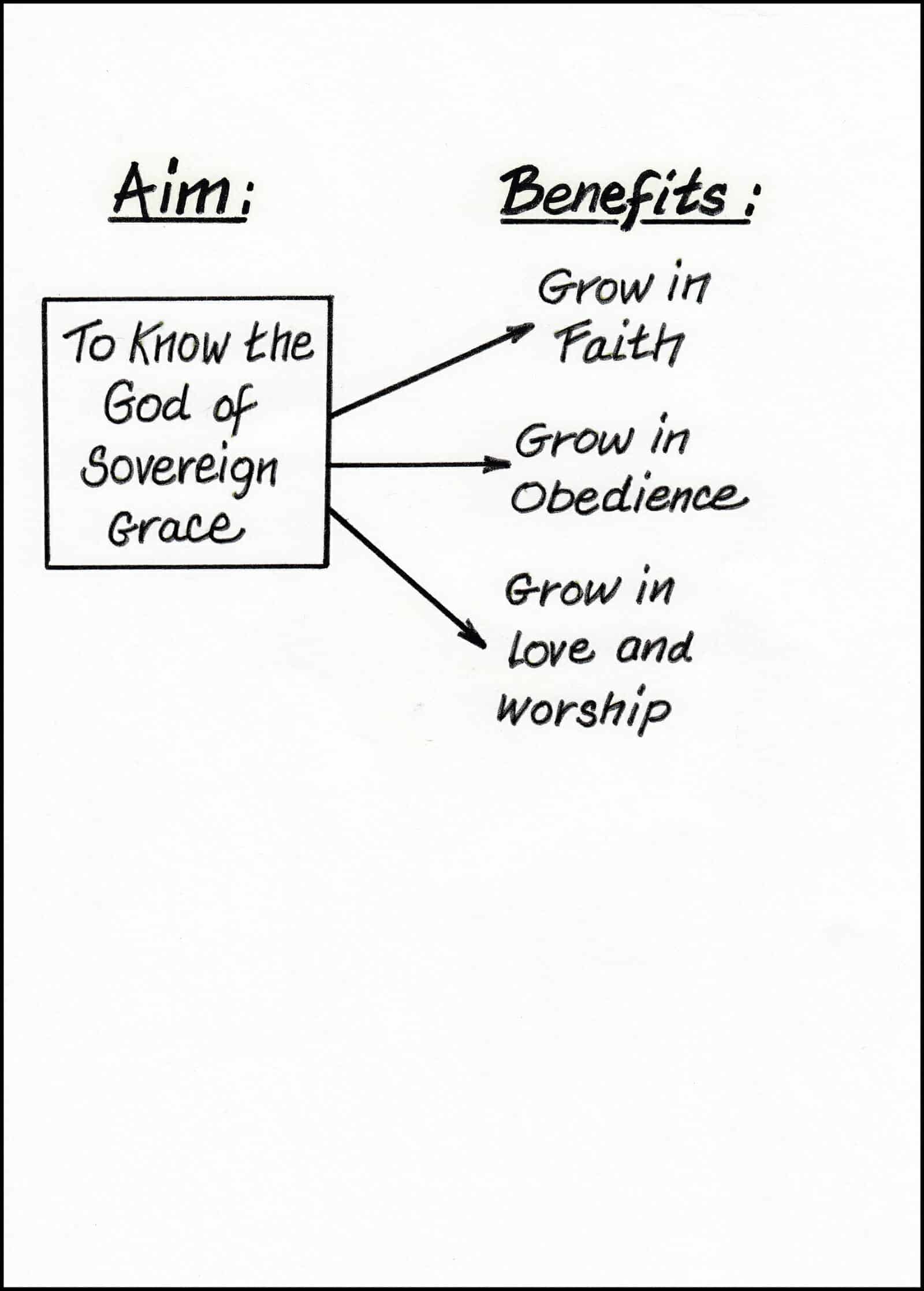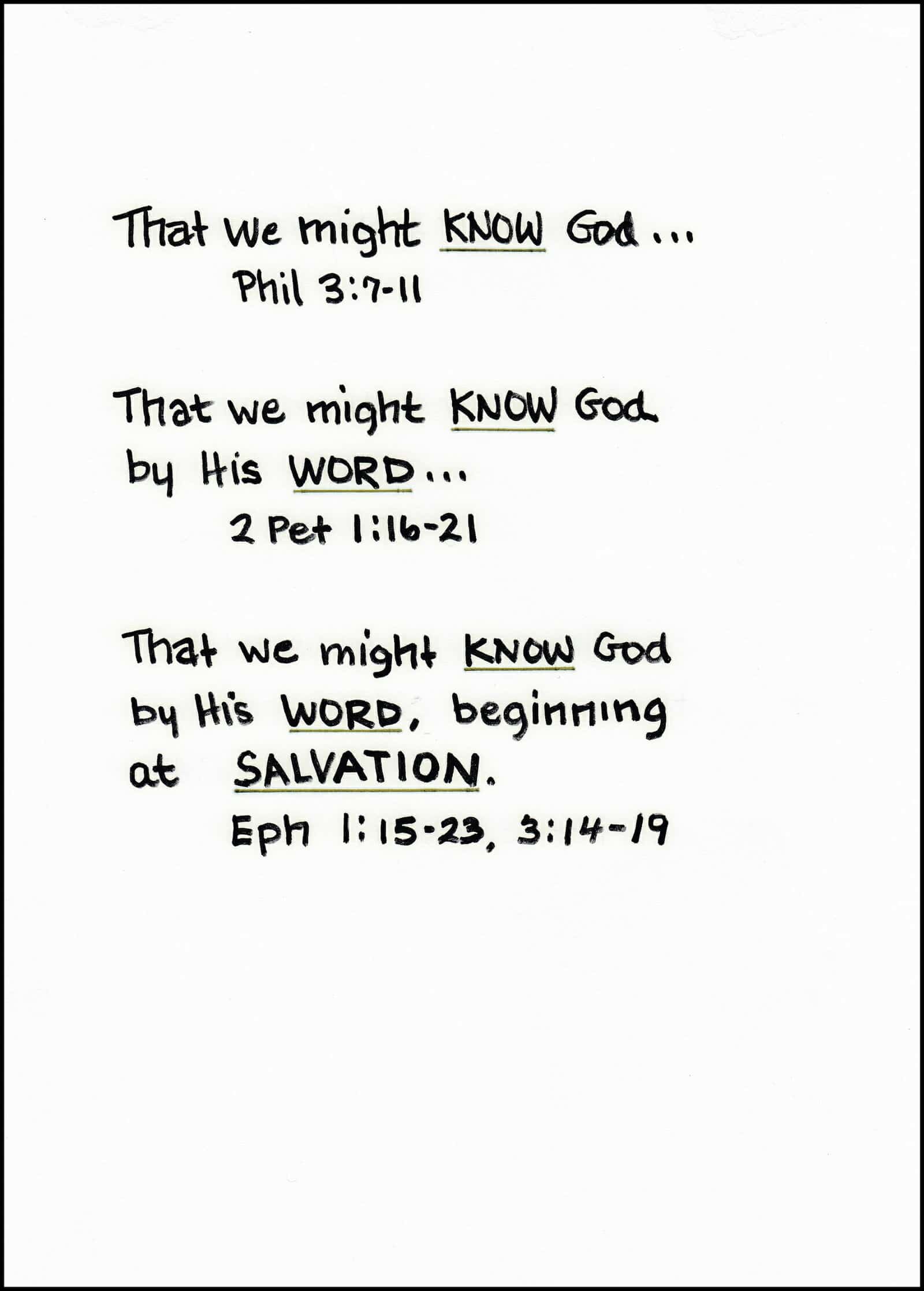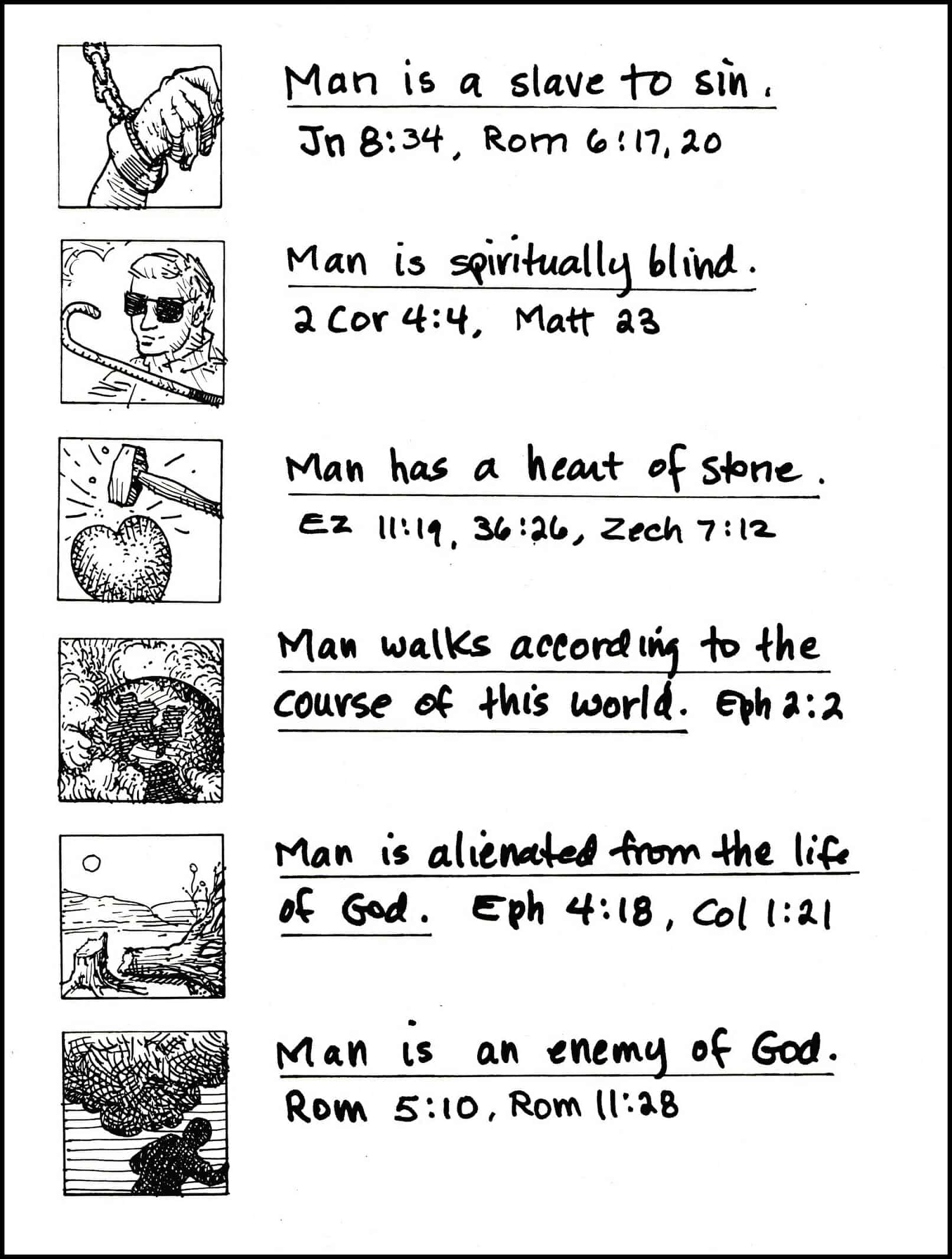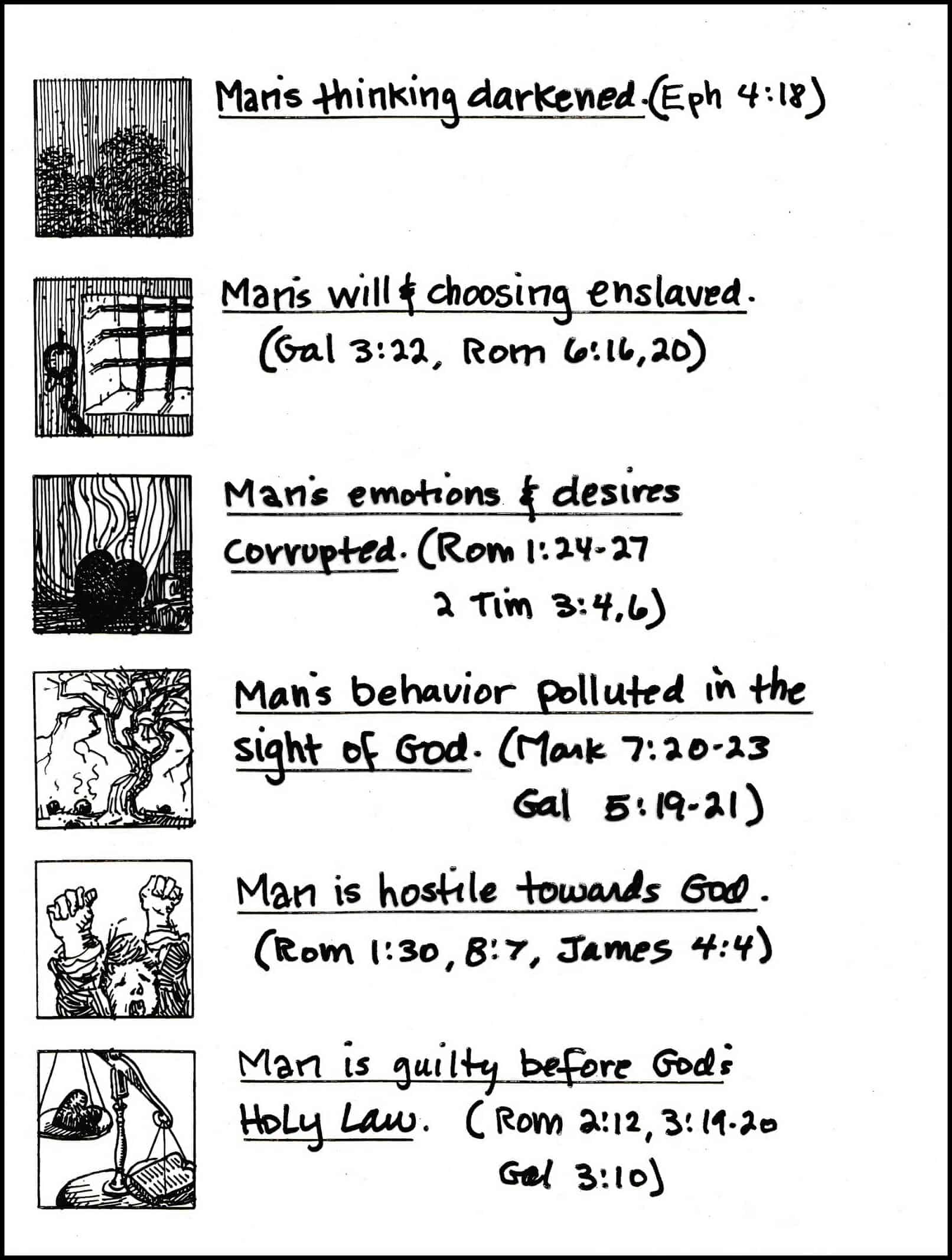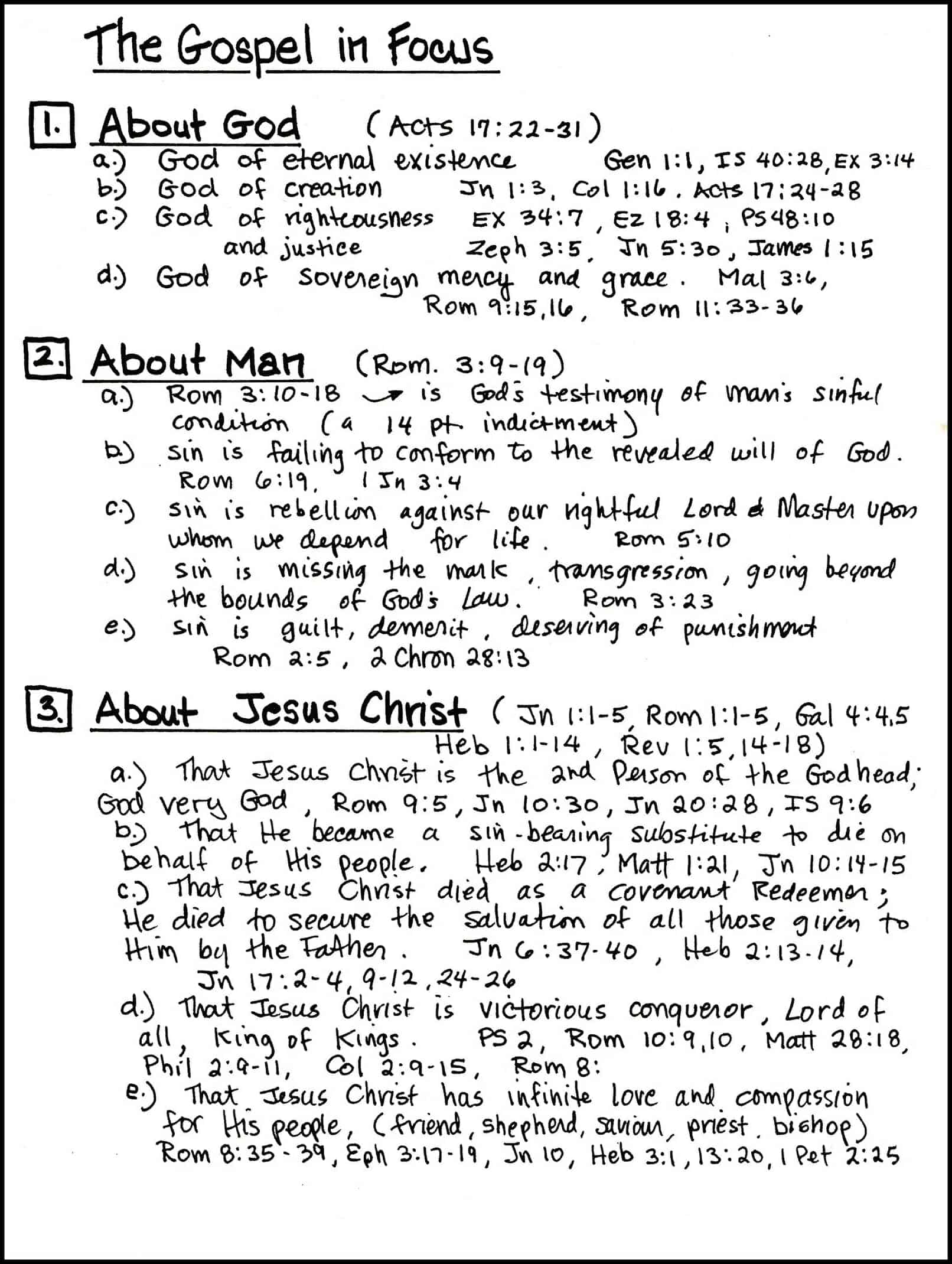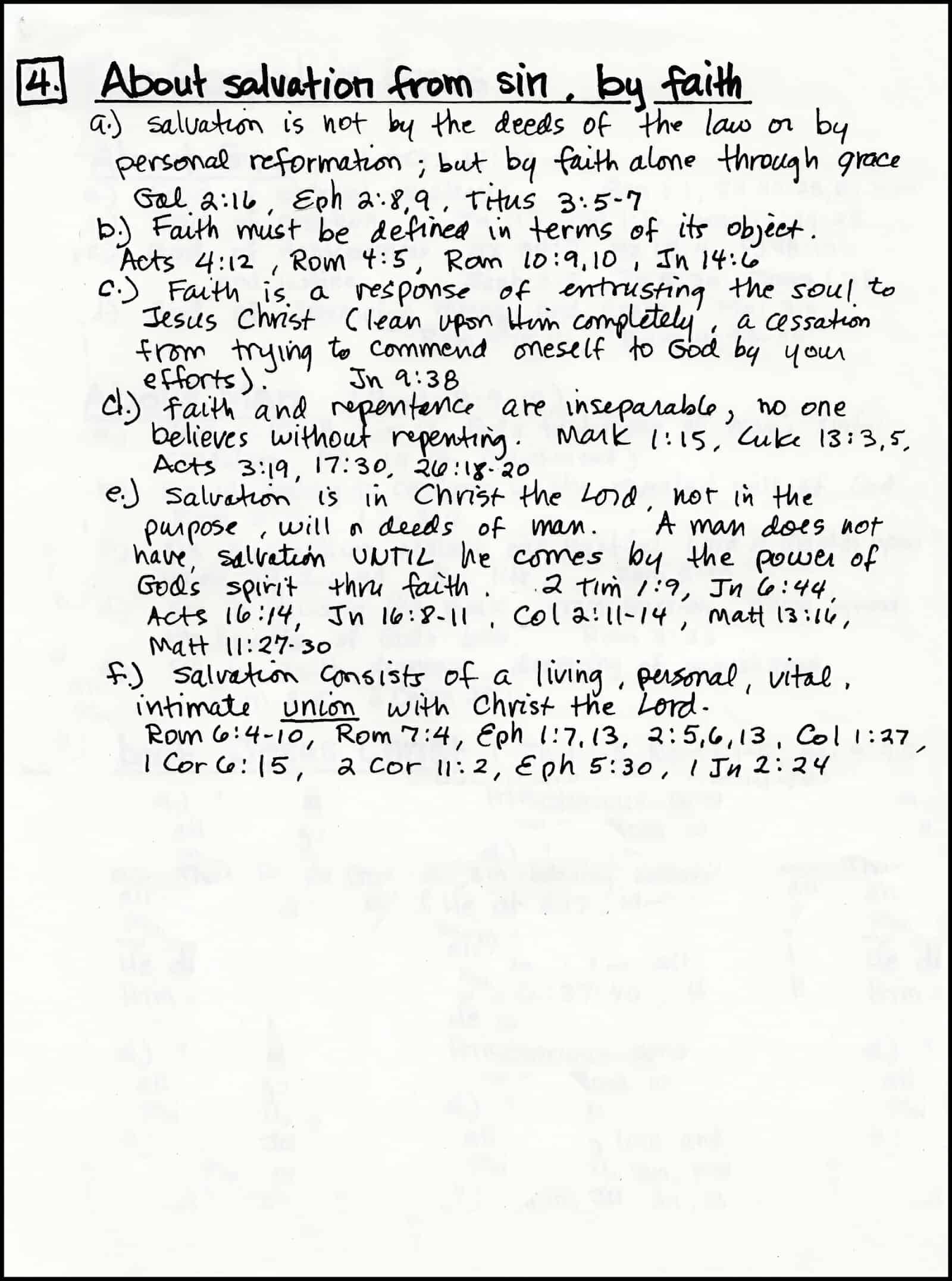THE GOSPEL FOR LIFE (GFL) study by Jay Wegter can be found here, and is titled, “The Glory Of God In The Face Of Christ (2 Cor 4:3-6).“
Gospel


John Macarthur’s Eulogy at R.C. Sproul’s Memorial
The fuller service can be watched HERE.

Voddie Baucham On The Gospel Centered Marriage
A couple friends and I are going though Voddie Baucham’s book, and we added some media to the mix. I wanted to post the sermon from the 2012 Shepherd’s Conference that we watched. And to give you a taste of how wide and diverse the Body is… one of us has been married for 22-years (not easy though!), another is getting married soon, and the other is divorced and working through being a father and preparing for a real relationship in the future. WE ALL are all student’s of our Lord, and are being challenged and learning from Voddie’s work, a fellow lover of our Lord.
Here are some quotes from the Reformers that were stolen from THE CHRISTIAN BRIDE RESOURCE (no posts since 2013). Take note this should be combined with this post, “The Office of Marriage,” enjoy:
Martin Luther, Preaching on Marriage
“How I dread preaching on the estate of marriage! I am reluctant to do it because I am afraid if I once get really involved in the subject it will make a lot of work for me and for others. … I would much prefer neither to look into the matter nor to hear of it. But timidity is no help in an emergency; I must proceed. I must try to instruct poor bewildered consciences, and take up the matter boldly….
In order that we may not proceed as blindly, but rather conduct ourselves in a Christian manner, hold fast first of all to this, that man and woman are the work of God. Keep a tight rein on your heart and your lips; do not criticize His work, or call that evil which He himself has called good. He knows better than you yourself what is good and to your benefit, as he says in Genesis 1 [2:18], “It is not good that the man should be alone; I will make him a helper fit for him.” There you see that He calls the woman good, a helper. If you deem it otherwise, it is certainly your own fault, you neither understand nor believe God’s word and work. See, with this statement of God one stops the mouths of all those who criticise and censure marriage.
For this reason young men should be on their guard when they read pagan books and hear the common complaints about marriage, lest they inhale poison. For the estate of marriage does not set well with the devil, because it is God’s good will and work. This is why the devil has contrived to have so much shouted and written in the world against the institution of marriage, to frighten men away from this godly life and entangle them in a web of fornication and secret sins. Indeed, it seems to me that even Solomon, although he amply censures evil women, was speaking against just such blasphemers when he said in Proverbs 18 [:22], “He who finds a wife finds a good thing, and obtains favour from the Lord.” What is this good thing and this favour? Let us see.
The world says of marriage, “Brief is the joy, lasting the bitterness.” Let them say what they please; what God wills and creates is bound to be a laughingstock to them. The kind of joy and pleasure they have outside of wedlock they will be most acutely aware of, I suspect, in their consciences. To recognise the estate of marriage is something quite different from merely being married. He who is married but does not recognise the estate of marriage cannot continue in wedlock without bitterness, drudgery, and anguish; he will inevitably complain and blaspheme like the pagans and blind, irrational men. But he who recognises the estate of marriage will find therein delight, love, and joy without end; as Solomon says, “He who finds a wife finds a good thing,” etc.
Now the ones who recognise the estate of marriage are those who firmly believe that God himself instituted it, brought husband and wife together, and ordained that they should beget children and care for them. For this they have God’s word, Genesis 1 [:28], and they can be certain that he does not lie. They can therefore also be certain that the estate of marriage and everything that goes with it in the way of conduct, works, and suffering is pleasing to God. Now tell me, how can the heart have greater good, joy, and delight than in God, when one is certain that his estate, conduct, and work is pleasing to God?
Now observe that when that clever harlot, our natural reason (which the pagans followed in trying to be most clever), takes a look at married life, she turns up her nose and says, “Alas, must I rock the baby, wash its diapers, make its bed, smell its stench, stay up nights with it, take care of it when it cries, heal its rashes and sores, and on top of that care for my wife, provide for her, labour at my trade, take care of this and take care of that, do this and do that, endure this and endure that, and whatever else of bitterness and drudgery married life involves? What, should I make such a prisoner of myself? O you poor, wretched fellow, have you taken a wife? Fie, fie upon such wretchedness and bitterness! It is better to remain free and lead a peaceful, carefree life; I will become a priest or a nun and compel my children to do likewise.”
What then does Christian faith say to this? It opens its eyes, looks upon all these insignificant, distasteful, and despised duties in the Spirit, and is aware that they are all adorned with divine approval as with the costliest gold and jewels. It says, “O God, because I am certain that thou hast created me as a man and hast from my body begotten this child, I also know for a certainty that it meets with thy perfect pleasure. I confess to thee that I am not worthy to rock the little babe or wash its diapers. or to be entrusted with the care of the child and its mother. How is it that I, without any merit, have come to this distinction of being certain that I am serving thy creature and thy most precious will? O how gladly will I do so, though the duties should be even more insignificant and despised. Neither frost nor heat, neither drudgery nor labour, will distress or dissuade me, for I am certain that it is thus pleasing in thy sight.”
A wife too should regard her duties in the same light, as she suckles the child, rocks and bathes it, and cares for it in other ways; and as she busies herself with other duties and renders help and obedience to her husband. These are truly golden and noble works. This is also how to comfort and encourage a woman in the pangs of childbirth, not by repeating St Margaret legends and other silly old wives’ tales, but by speaking thus, “Dear Grete, remember that you are a woman, and that this work of God in you is pleasing to him. Trust joyfully in his will, and let him have his way with you. Work with all your might to bring forth the child. Should it mean your death, then depart happily, for you will die in a noble deed and in subservience to God. If you were not a woman you should now wish to be one for the sake of this very work alone, that you might thus gloriously suffer and even die in the performance of God’s work and will. For here you have the word of God, who so created you and implanted within you this extremity.” Tell me, is not this indeed (as Solomon says) “to obtain favour from the Lord,” even in the midst of such extremity?”
John Calvin’s Writing on Marrying and Marriage
(On what he looked for in a wife…)
“Always keep in mind what I seek to find in her, for I am none of those insane lovers who embrace also the vices of those with whom they are in love, where they are smitten at first with a fine figure. This is the only beauty that allures me: if she is chaste, if not too fussy or fastidious, if economical, if patient, if there is hope that she will be interested in my health.”
(In a letter to a new convert…)
“…I might wish that you were a little more sparing in your approval of celibacy. (Please pardon my naivete, in that I do not hesitate to tell you freely what I do not like.)
I see that your advice is not without a reasonable basis. Those who are involved in marriage are less free for the Lord’s work, and it is expedient for those who want to consecrate themselves altogether to the Lord to be free of this hindrance. Then too, continence itself lends not a little dignity to the holy ministry. Lastly, you do not use pressure or tyranny to force celibacy upon those who hold ecclesiastical office, but you counsel with them simply and convince them of what you judge to be in the best interests of the church.
And yet, although I confess that marriage brings with it many different impediments, and that it is desirable for the servants of Christ to be free of these, nevertheless I do no concede that the impediments are of a sort to call them away from their duty. I would argue, on the contrary, that celibacy has its own disadvantages, and that these are considerable and not all of one type. I am not speaking yet of the difficulty of sexual continence. I say that celibate men are distracted by no slighter and fewer distractions than married men…“
John Knox
“Brethren, you are ordained of God to rule your own houses in his true fear, and according to his word. Within your houses, I say, in some cases, you are bishops and kings; your wife, children, servants, and family are your bishopric and charge. Of you it shall be required how carefully and diligently you have instructed them in God’s true knowledge, how you have studied to plant virtue in them, and [to] repress vice. And therefore I say, you must make them partakers in reading, exhorting, and in making common prayers, which I would in every house were used once a day at least.”
Martin Bucer
“Now the proper and ultimate end of marriage is not copulation, or children… but the full and proper and main end of marriage is the communicating of all duties both divine and human, each to other with utmost benevolence and affection.”
[….]
“There should be the most intimate unity in marriage in accord with its divine institution.”
[….]
“Therefore, let Christians be mindful of the purpose of the institution of marriage, and let them remember that to regard for any reason as unlawful what is commended by God’s voice as good—as indeed we read that marriage is so commended—is to impugn the goodness of God.”
[….]
“Let us notice here also the commendation of the wonderful dignity of marriage: God is its author, and he it is who unites those who come together in marriage. What way of life, what regimen of the holiest of monks and nuns enjoys such an encomium? Therefore, let husbands and wives nourish their confidence on this truth, that God has joined them together. Though they complain when any adversity befalls them, he cannot possibly abandon them in the estate in which he himself has placed them, provided they depend upon him. Moreover, let them nourish also their love on this truth, for if God has joined them together in such a way that they become one person and cleave to each other after leaving their parents, the husband should obviously be happy with whatever wife the Lord has assigned him, and love her as his own flesh. The wife in turn must honor her husband for the Lord’s sake, whatever kind of man he may be, because God has given him to her. Each of them, indeed, ought not to doubt that whatever he or she does for the other partner is done for the Lord.”
BTW, I love how Voddie expresses early that a) he is speaking of the “ideal,” and b) no one is living the ideal. BUT, that doesn’t mean we do not strive towards it. Scripture says we are to “run with patience (endurance, persistence) the race set before us, looking unto Jesus the Author and Finisher of our faith… For consider Him that endured… lest ye be wearied and faint in your minds” (Hebrews 12:1-3).
The DAILY SIGNAL has this summary:
….In the same way Scripture commands us to love God and love others as we love ourselves, perhaps marriage can be thought of as an act to love God and others, and to grow ourselves.
Talk to any happily married couple, and they will tell you marriage has humbled them, highlighted their weaknesses, and expanded their capacity to love. In short, marriage has forced them to grow as people. And couples in healthy marriages often express a deep joy that they have found in having a companion to walk through the highs and lows of life with.
Marriage is a gift to the betterment of self.
But marriage viewed only as a means to make you and your spouse happier and healthier is like Leonardo da Vinci painting the body of the Mona Lisa without the face: It’s beautiful, but incomplete.
Studies, such as those reported by the National Library of Medicine, find that married men are less likely to commit crime when married to women without a criminal record, and children who have two parents, whether biological or adopted, are less likely to live in poverty and are more likely to reach higher levels of education and occupational attainment.
Marriage even decreases alcohol use, according to studies.
Marriage gives individuals something to live for that is bigger than self-fulfillment, and that in turn benefits society, aka “others.” It’s no stretch to say a marriage boom across America would do more to reduce crime, end child poverty, and raise living standards than any government program ever could.
The full picture of the purpose of marriage can only be completed in light of God and Christ’s sacrifice on the cross. Even if one is not a believer in God, the following may still prove helpful to understanding why marriage is so important to faith-filled communities across the world.
Scripture refers to the Church, those who believe in and follow Jesus, as Christ’s “bride.” Marriage between a man and woman on Earth is intended to be a reflection of Christ’s love and commitment to His bride, the Church.
As the book of Ephesians advises, “And walk in love, as Christ loved us and gave himself up for us, a fragrant offering and sacrifice to God.”….
A good BIBLE.ORG lesson is this one: “Faith to Run the Christian Marathon” — remember, a race has a goal. Jesus life and finished work is our ideal, our goal, so train well (1 Corinthians 9:24-27).
|
BIBLICAL WOMANHOOD |
BIBLICAL MANHOOD |

Challenging Rome’s “Gospel” (John MacArthur)
Roman Catholic False Gospel John MacArthur
Pastor MacArthur answers the following questions about Roman Catholicism in THIS video:
1. Does church history support Romanism?
2. What about late forming Romanist doctrines?
3. Is there such as thing as apostolic succession? Does this prove Romanism true?
4. Is there circular reasoning in saying that Catholicism is infallible?
5. What is the definition of the church?
6. Does the lack of authority in diverse protestant churches prove the need for a monolithic Roman Church?
7. What about scripture alone?
8. When tradition contradicts scripture which has the authority?
9. Does the Bible teach that traditions are inspired & authoritative?
10. 2 Corinthians 5:21 – What is the true gospel?
11. Why did Jesus live a full life here on earth for 33 years?
12. How is Rome’s gospel different than the gospel of the Bible?
13. How does mass, purgatory, good works, etc take away from the true gospel?
14. What about works & James 2:24?
15. What is the difference between justification & santification?
16. Does Rome preach a false gospel & is it damnable heresy?
17. What about Romanist baptismal regeneration?
18. Can a person be saved without water baptism?
19. What about spirit baptism?
20. Has Romanism changed since Vatican II?
21. Are Roman Catholics our brothers & sisters in Christ?
22. What is wrong with the “Evangelicals and Catholics Together” document?
23. What if you are an ecumenical evangelical?

The Basics of the Christian Faith (i.e., Putting Man In His Place)

What is the Gospel of Jesus Christ? (Jeff Durbin)

Love Me Some Kreeft! (The Benefits of Belief)
Even if you don’t believe in God, do you wish you did? Even if you’re an atheist or an agnostic, is there still good reason to act religiously? Peter Kreeft, philosophy professor at Boston College, explains why even atheists should want there to be a God, and how acting as if there is one may actually lead to you believing it.
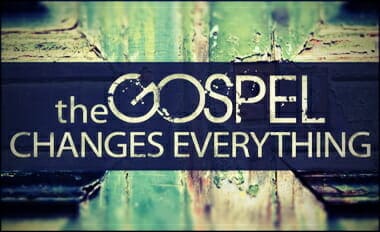
Good News Means There is Bad News
I love Propaganda’s above presentation. It hits all the points in the below video. You see, a life lived without the GOSPEL MESSAGE infused into your walk makes a truly lost soul where in the end nothing you do amounts to anything important. It mirrors naturalism in that all your actions… and humanities collective achievements, are all for nothing. Except, unlike naturalism, you live with this consequence in some form — ETERNALLY.
Josh McDowell put it best on why there has to be judgment for our sins, let me paraphrase him with this story of a judge and his daughter.
There was a district court judge who had been on the bench for thirty years, he was a just judge. He has never taken a bribe, always handed out judgment and leniency in a fair and balanced way, only within the parameters of what the law allowed. In other words, a just, righteous member of the legal system as well as the community. One day while in session, his only child, a daughter, was brought before him with a traffic violation. She had broke the law and was arrested for her excessive speeding. What was he to do? He loved his daughter immensely, so he could fine her only one dollar and no jail time. But this would mean he would be an unjust judge, not worthy of the position he holds.
So instead, he fines her 500 hundred dollars and three days in jail. He is heart broken, but that is what the law requires. Just as soon as his gavel hits the bench, he rises from his chair, removes his robe of authority, steps down from the raised platform to come around to the front of the bench. He, with a tear in his eye, throws an arm around his daughter, whom he loves dearly, and with the other hand pays the fine and puts himself in her place in the three day sentence. This is TRUE love, and TRUE justice.
In the same way, the just God of the Bible is our judge. He would be un-worthy of our worship and honor if he acted any other way. He has pronounced death as the judgment of our rebellion and sin [Death and hell are merely eternal separation from him, and because of that, there will be gnashing of teeth]. As our heavenly Father, who knew us before we were in the womb, he loved us so much (His creation) that he stepped down from his heavenly throne to the earth and paid the price for our infractions against the “court.” No other god in history in any other religious belief cared so much as to offer the only acceptable (free of sin) gift, Himself. This is the beauty of the Christian faith.
Remember
The Gospel STARTS with a terrifying truth, that is,
“If only it were all so simple! If only there were evil people somewhere insidiously committing evil deeds, and it was necessary only to separate them from the rest of us and destroy them. But the line dividing good and evil cuts through the heart of every human being. And who is willing to destroy a piece of his own heart?”
― Aleksandr Solzhenitsyn, The Gulag Archipelago 1918–1956
God doesn’t put people he loves in “hell”, those people choose that place as a replacement for God’s already done work on the cross. I firmly believe that if you were able to go to hell and ask someone there if they would like to change their mind and accept Jesus, they would respond in the negative! Why? Because they would rather have eternal pain and “hell fire” than to acknowledge Jesus as their Lord and Savior.
Even Stephen Hawkings gets this distinction (from an old debate):
One of the most intriguing aspects mentioned by Ravi Zacharias of a lecture he attended entitled “Determinism – Is Man a Slave or the Master of His Fate,” given by Stephen Hawking, who is the Lucasian Professor of Mathematics at Cambridge, Isaac Newton’s chair, was this admission by Dr. Hawking’s, was Hawking’s admission that if “we are the random products of chance, and hence, not free, or whether God had designed these laws within which we are free.” In other words, do we have the ability to make moral life choices, or do we simply follow a chemical reaction induced by millions of mutational collisions of free atoms? Michael Polyni mentions that this “reduction of the world to its atomic elements acting blindly in terms of equilibrations of forces,” a belief that has prevailed “since the birth of modern science, has made any sort of teleological view of the cosmos seem unscientific…. [to] the contemporary mind.”
Mortimer J. Adler points out in his book Ten Philosophical Mistakes that without true choice, free will, nature disallowes any talk of moral categories. He says “What merit would attach to moral virtue if the acts that form such habitual tendencies and dispositions were not acts of free choice on the part of the individual who was in the process of acquiring moral virtue? Persons of vicious moral character would have their characters formed in a manner no different from the way in which the character of a morally virtuous person was formed—by acts entirely determined, and that could not have been otherwise by freedom of choice.”
Fyodor Dostoyevsky’s maxim rings just as true today as it did in his day, “If there is no God, all things are permissible.” Without an absolute ethical norm, morality is reduced to mere preference and the world is a jungle where might makes right. This same strain of thought caused Mussolini to comment, “Everything I have said and done in these last years is relativism by intuition…. If relativism signifies contempt for fixed categories and men who claim to be bearers of an objective, immortal truth… then there is nothing more relativistic than fascistic attitudes and activity…. From the fact that all ideologies are of equal value, that all ideologies are mere fictions, the modern relativist infers that everybody has the right to create for himself his own ideology and to attempt to enforce it with all the energy of which he is capable.”
Notice that Mussolini agrees that might makes right. There was another bad boy on the block in those days, his name was Hitler, who agreed when he said, “I freed Germany from the stupid and degrading fallacies of conscience and morality… we will train young people before whom the world will tremble. I want young people capable of violence – imperious, relentless and cruel.” Again, the rejection of moral absolutes creates what? Young people who will scare the bejesus out of the world. (Take note of the rise in youth violence in our school system.)
But what is this “absolute” that Mussolini referred to as “the immortal truth?” What is the “stupid and degrading fallacies of conscience and morality” that Hitler removed in order to created a nation of hate mongers? Heidegger, In Being and Time, discussed the problems facing men living in a post-Enlightenment secular world which he called“the dark night of the world.” A world in which the light of God had been eclipsed and in which men were left to grope around as best they could, searching in the darkness for any scraps of meaning that might be found. Is it any wonder then that Heidegger backed the National Socialists (Nazis) for most of the 1930’s. society – a world without God in other words. Heidegger called this situation
Apologist, lawyer and theologian John Warwick Montgomery references this choice in a quick blurb about the existence of evil and a good God:
Opponents of theism have perennially argued that the natural and moral evils in the universe make the idea of an omnipotent and perfectly good God irrational. But if subjectivity (and its correlative, freewill) must be presupposed on the level of human action, and if God’s character as fully transcendent divine Subject serves to make human volition meaningful, then the existence of freewill in itself provides a legitimate explanation of evil. To create personalities without genuine freewill would not have been to create persons at all; and freewill means the genuine possibility of wrong decision, i.e., the creation of evil by God’s creatures (whether wide ranging natural and moral evil by fallen angels or limited chaos on earth by fallen mankind).
As for the argument that a good God should have created only those beings he would foresee as choosing the right – or that he could certainly eliminate the effects of his creatures’ evil decisions, the obvious answer is (as Plantinga develops it with great logical rigor in his God and Other Minds) that this would be tantamount to not giving freewill at all. To create only those who “must” (in any sense) choose good is to create automata; and to whisk away evil effects as they are produced is to whisk away evil itself, for an act and its consequences are bound together. C. S. Lewis has noted that God’s love enters into this issue as well, since the Biblical God created man out of love, and genuine freewill – without the free possibility of accepting love or rejecting it. Just as a boy who offers himself and his love to a girl must count on the real possibility of rejection, so when God originated a creative work that made genuine love possible, it by definition entailed the concomitant possibility of the evil rejection of his love by his creatures.
The choice is yours….
….All your answers will not be magically swept away, but you will be on a road of deeper understanding and a spiritual journey that includes love in it. No other world religion has this type of love story in it. Here is a witnessing situation that includes the above thinking, it is instructive to show how wide the divide is between us and our Lord:
This may seem simple, but the Roman’s road brings you to the sinners prayer. God has so wired you and this cosmos that He responds to this simple prayer
In a presentation that I gave in a Sunday class at church (and added media to here), I end with this wonderful video that encapsulated the Gospel message the most effectively — in my minds eye:

What is the Gospel?
(Wintery Knight H/T) ~ Training in the faith!

Gospel Oriented Apologetics Increases Meaning for Life ~ Greg Ganssle
Throughout ones life we need to reorient ourselves to a focal point. Going from the technical to the personal is something I have to remind myself of, again and again. This is a great presentation to refocus us on the interpersonal relationships between people… allowing God to move through these opportunities to impact the heart and mind.
Some Insight Into Romans 1:23 ~ via Gospel for Life
During a teaching, professor Jay Wegter gleans from Romans that we are doomed — have bo choice, are determined to worship the creature/creation without some other — outside force. E.g., Jesus’ Sacrificial input. We are ONLY set free via Calvary.
For more great resources and discipleship teachings, see: http://gospelforlife.org/
- 2 of 2
- « Previous
- 1
- 2

